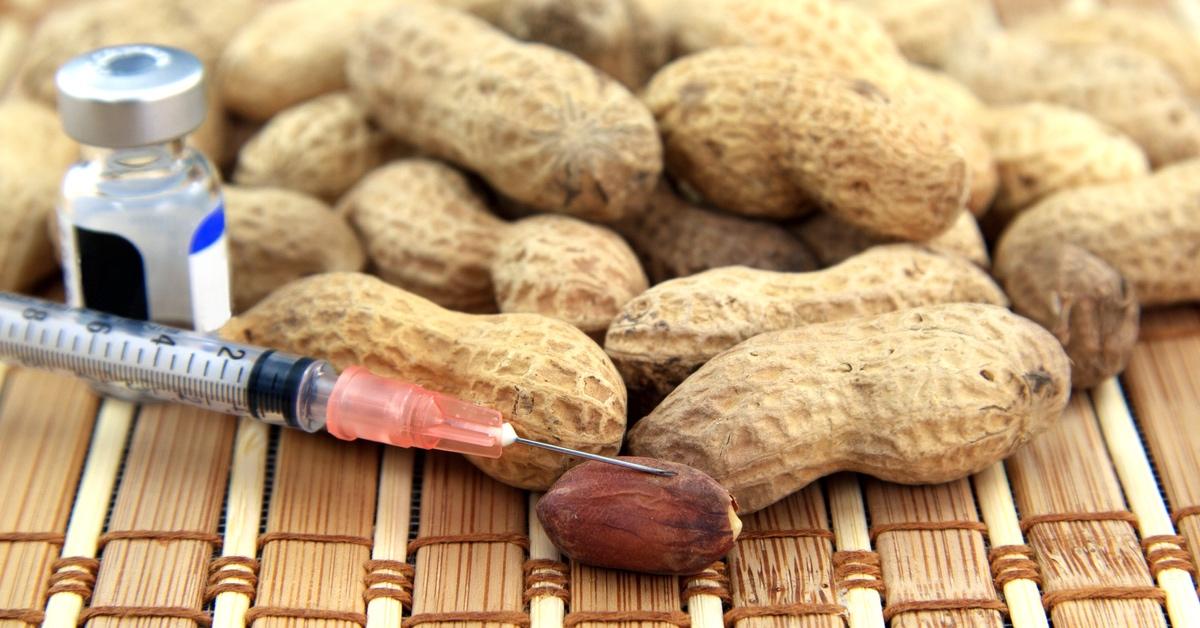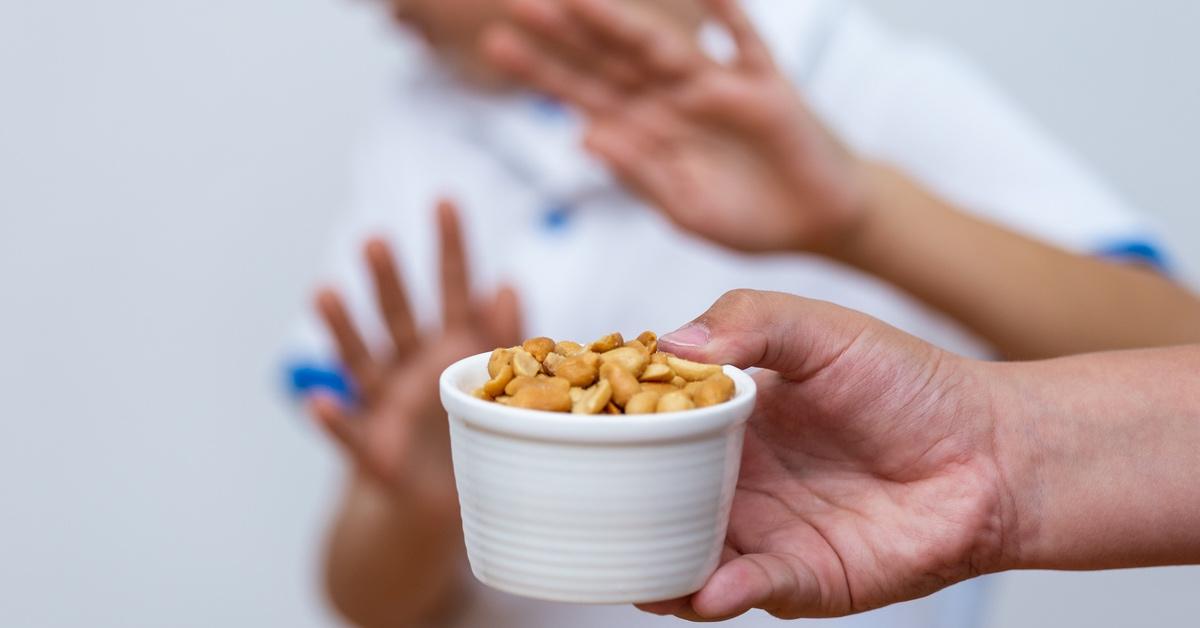This Drug Could Provide Relief for Those With Severe Food Allergies — and the FDA Finally Approved It
There is currently no cure for food allergies, but drug Xolair was approved to help reduce severe food allergy reactions.
Published Feb. 19 2024, 12:39 p.m. ET

Food allergies aren't as uncommon as you might think. According to the Centers for Disease Control and Prevention (CDC), almost 1 in 3 adults and 1 in 4 children have some sort of allergy, with 6 percent of adults in the U.S. having a food allergy. If you're someone who has a food allergy, especially a severe one, you know it can be hard to go to new restaurants or attend a potluck out of fear of accidental exposure.
On Feb. 16, 2024, the Food and Drug Administration (FDA) approved a drug called Xolair that is designed to reduce the risk of accidental exposure and ultimately, keep those with severe food allergies safer. Here's everything you need to know about the drug, including its potential side effects.

On Feb. 16, 2024, the FDA approved Xolair to reduce the risk of severe reactions from food allergies.
On Feb. 16, the FDA released a statement announcing it had approved Xolair, an injection, to reduce the risk of allergic reactions and anaphylaxis that typically occurs after accidental exposure. Per NPR, it is considered the first-ever drug that can protect people against multiple food allergies.
However, the FDA's statement also emphasizes that those with food allergies should continue to stay away from the foods they are allergic to. Xolair is not designed to treat immediate emergency allergic reactions like anaphylaxis.
Xolair is to be injected repeatedly every few weeks, and is intended to reduce allergic reactions, as there is currently no cure for food allergies.

The FDA determined Xolair's safety and effectiveness through a study of 168 subjects, both adults and children, who had a peanut allergy and at least two other allergies, including allergies to cashews, eggs, hazelnuts, milk, walnuts, and wheat.
Subjects were given either Xolair or a placebo for 16 to 20 weeks and then measured against a single dose of peanut protein to see who would be able to consume it without moderate or severe reactions at the end of the treatment.
Kelly Stone, M.D., Ph.D., associate director of the Division of Pulmonology, Allergy, and Critical Care in the FDA’s Center for Drug Evaluation and Research, said of the drug's approval, "While it will not eliminate food allergies or allow patients to consume food allergens freely, its repeated use will help reduce the health impact if accidental exposure occurs."

What are the side effects of Xolair?
According to the FDA press release about Xolair, the most common side effects of the drug, as observed in study subjects, were "injection site reactions and fever."
Like most drugs, Xolair does come with other warnings that include "anaphylaxis, malignancy, fever, joint pain, rash, parasitic (worm) infection and abnormal laboratory tests," according to Genentech.
Xolair was previously approved in 2003 for treatment of asthma in certain patients. It was also previously approved to treat "chronic spontaneous urticaria and chronic rhinosinusitis with nasal polyps" in certain patients, per the FDA.
According to the Associated Press (AP), the drug had been previously used "off-label" to treat certain food allergies, says Dr. Ruchi Gupta, director of the Center for Food Allergy & Asthma Research at Northwestern University.